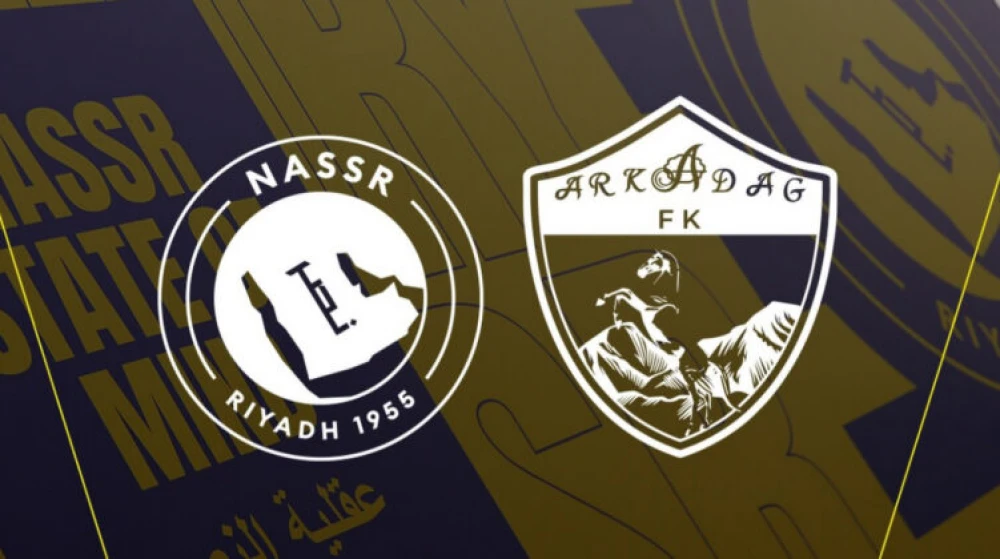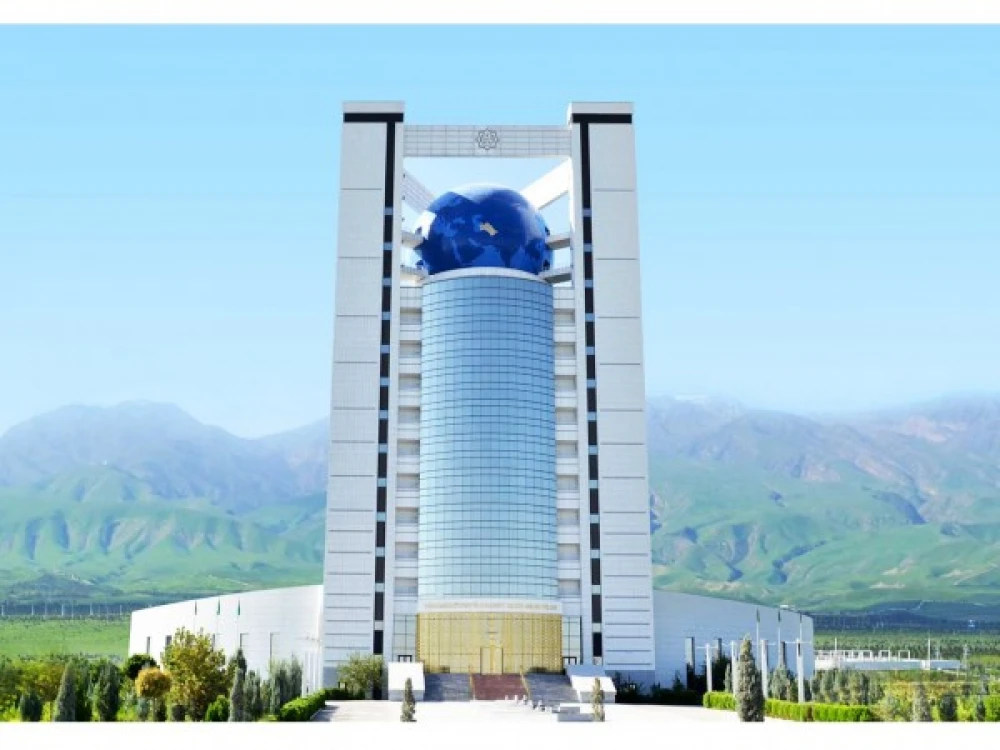30/11/-0001
1975
Bairam Khan Turkmen as a historical symbol of Turkmenistan’s cultural diplomacy
Gurbanguly Berdimuhamedov
Esteemed President of Turkmenistan
- The poetic and philosophical unity of thoughts, multifaceted views on
the glorification of humanity, the elevation of the human dignity are
the main features of the poet's work.
The literary heritage of Bayram Khan,
which entered the universal poetic treasury as an ode to humanity,
friendship, goodness and beauty, is our pride.
The year of 2022 under the motto “The Era of the People with Arkadag” is one of the remarkable years for Turkmen nation. This year marks 30 years since the adoption of one of the key pillars of the statehood - the Constitution of Turkmenistan. And at the same throughout this year, Turkmenistan celebrates the 30th anniversary of the establishment of diplomatic relations with many countries of the world. Since the first days of its independence Turkmenistan has announced the policy of “open doors” and has chosen its own unique way of international cooperation that based on principles of humanity, hospitality, mutual respect, good neighborliness, and stability. This year as well, on the 2nd of March will be 30 years from the date of becoming by Turkmenistan a member of the main international organization - the United Nations. For 30 years of membership in the UN, Turkmenistan, as a young state, has achieved significant heights in maintaining peace and stability both in the world and in the region. As the results of great efforts undertaken by the government of Turkmenistan in the head with Esteemed President Gurbanguly Berdimuhamedov in the sphere of foreign policy, nowadays, Turkmenistan has established diplomatic relations with 151 countries of the world and is member of 47 international organizations. Therefore, taking to consideration 30th years of positive experience of foreign policy activities, it cannot be argued that our country has developed its own unique model of Turkmen diplomacy.
The model of Turkmen diplomacy is initially based on the unique universally accepted status of Permanent Neutrality. The Recognition of the permanent Neutrality of Turkmenistan at 50th anniversary session of the UN General Assembly opened a new era in the historical development of the Turkmen state. The adoption on the second time on June 3, 2015 at the 69th session of the UN General Assembly Resolution “Permanent Neutrality of Turkmenistan” has given a new positive vector of neutrality. Permanent positive Neutrality of Turkmenistan embodies in itself such principles of Turkmen ancestors as humanism, good-neighborliness, hospitality and preservation of peace. Therefore, in our country under the leadership of Esteemed President Gurbanguly Berdimuhamedov the great attention is given to the glorification of the great historical figures – the Turkmen ancestors who spiritualizes the modern policy of positive neutrality of Turkmenistan. One of such great historical figures is Bairam Khan Turkmen who is embodying national pride by leaving a worthy mark in the history of statehood, as well as the diplomacy of Turkmen people.
Bairam Khan Turkmen descended from the Turkmen family named “Baharly”. He was born in 1501 or 1502 year in the family of Gazni’s governor He followed all the best features of the Turkmen people and was highly appreciated in public administration. He was well educated for his times and knew three languages: Turkic, Persian and Arabian.
He volunteered to the squad of Prince Humayun at the age of 16. Bairam Khan was the closest ally of Humayun in the fight against Sher Shah for the possession of northern India. He showed himself as a military and skillful diplomat. By using his authority, he contributed to the reconciliation of Emperor Humayun with his brothers, and also organized a diplomatic visit of the deposed Emperor (in 1539 Humayun lost his throne) to Shah Tahmasp, the ruler of Safavid state. In 1555, Bairam Khan, at the head of Humayun's army, defeated the Delhi Sultan Sikandar Shah III of the Surid dynasty, who had an army of 80,000. Appreciating the devotion of Bairam Khan, Humayun appointed him as the scientific, educational and military mentor of his son Akbar, who learned from Bairam Khan the methods of implementing the foreign policy of states, unique ways of governing the country, fulfilling the goals and objectives of the government, fairly settle contradictions arising in activities to protect the interests of the state. The high culture of the imperial court was paradigmatic for officials, administrators and cavalrymen. Emperors, princes and great officials displayed their skills at court and on the battlefield, manifesting the ideal of the fully cultured man.
In 1556, after Humayun's death, Bairam Khan became the regent under Humayun's heir Akbar. From 1556 to 1560, Bairam Khan independently controlled the Mughal Empire, in November 1556, in the battle of Panipat, he defeated the army of Hemu, the pretender to the throne of Delhi.
Thanks to Bairam Khan, who laid the foundations of a single statehood, mutual and interreligious tolerance, the Great Mughals Empire, founded by Babur, achieved its greatness and strengthened. The name of Bairam Khan is mentioned in the events connected not only with history of Turkmenistan but also with the history of India, Central Asia, Iran, Khorasan of those times. Among such works, one can single out “Humayunnama” by Gulbeden Begim, “Muntakhabut-tavarikh” by Abdulbakir Bedeuni, “Tarihi Fereshte”, “Tekmili Ekbernama”, “Tarihi Humayunshahi”, “Tarihi Hakki”, “Ekburnama” and many others. His compatriots live in Akhal, Balkan, Dashoguz velayats of our Motherland, in Turkey, Iran, Iraq, Syria, Azerbaijan, Afghanistan, Pakistan, and India.
In world history, Bairam Khan left a mark not only as a great commander and skillful diplomat but also as a famous poet. Among the most famous works of Bairam Khan, surviving to these days, the most popular is his divan “The Persian and Turki divans of Bairam Khan, Khan-Khanan”, published in 1910 in Calcutta by the English scientist Denison Ross. The divan includes poems by Bairam Khan in Persian and Turkmen languages. Turkmen poems of the poet give us the opportunity to trace features of the historical development of the Turkmen language. In this regard, noting the outstanding contribution of Bairam Khan to the history of Turkmen People, Honorable President Gurbanguly Berdimuhamedov states:
“The contribution of the “khan of all khans” Bairam Khan, his son Abdurahim Khan, a descendant of the Garagoyunly Turkmens, to the strengthening and prosperity of the Mughal dynasty is enormous. The great commander Bairam Khan, who emerged from the bowels of the people, accomplished great deeds with the power of the Turkmen pen and words, was a defender of the interests and justice of the people. Poetry and the unity of philosophical wisdom, versatile views on the dignity of mankind and the elevation of human dignity are one of the main features of the poet's work. The literary heritage of Bairam Khan, included in the treasury of universal poetry as a glimpse of humanity, friendship, kindness and beauty, is our national pride. Our sacred duty is to glorify the name and dignity of the poet Bairam Khan, the commander who spread the spiritual world of the Turkmen people with his immortal poems in the new historical era of our society.”
Taking into account the role and significance of Bairam Khan Turkmen in the rich history of the Turkmen people, it will not be mistaken to state that he is a historical symbol of the Turkmenistan’s cultural diplomacy.
As For instance, since Turkmenistan became an Independent and Neutral State, much attention has been paid to Bairam Khan’s personality and creative work. In 2000, the National Institute of Manuscripts of Turkmenistan published the Turkmen divan of Bayram Khan. In 2009, on the initiative of the President of Turkmenistan Gurbanguly Berdimuhamedov, the National Institute of Manuscripts of the Academy of Sciences of Turkmenistan and the Ministry of Education of Turkmenistan held an international scientific conference entitled «Bayram Khan and the Mogul State». Finally, last year, in the international year of Peace and Trust, an international online-forum called «Muhammad Bayram Khan the Turkmen and the Principles of Courage, Patriotism and Humanity of the Turkmen People» was organized.
All these events organized under the supervision of our Honorable President Gurbanguly Berdimuhamedov present the evidence of huge value of Bairam Khan’s heritage for our nation and consolidation of relationships between nations bound by joint history. Therefore, in the cultural diplomacy of Turkmenistan Muhammet Bairam Khan a commander, diplomat and poet plays an important role.
Generally, in international relations, cultural diplomacy, by being a part of public diplomacy, is associated with “soft power” that expands international ties in the field of culture, strengthens friendly relations, as well as expands the boundaries of effective humanitarian between peoples and assists to the development of creative, intellectual abilities among the young generation. Cultural diplomacy plays an important role in foreign policy by contributing to the mutual enrichment of national cultures and the activation of global initiatives.
Thus, cultural diplomacy for Turkmenistan is very essential element in foreign policy strategy since it stimulates the effective international cooperation for the sake of global peace, security and development. Consequently, in the context of cultural diplomacy, popularization of the scientific study of such historical figures as Bairam Khan will have a beneficial effect on the formation of an exceptionally positive image of our neutral country in the world community and contributing to an objective definition of its historical role in world civilization.
BIBLIOGRAPHY:
1. Gurbanguly Berdimuhamedow. Türkmenistan - Beýik Ýüpek ýolunyň ýüregi. II kitap. TDNG. Aşgabat. 2018ý.
2. Б. Захыров, «Внешнеполитический курс Туркменистана – торжество политики позитивного нейтралитета», Россия и Центральная Азия: новые перспективы: материалы междунар. науч. конф., посвященной 25-летию установления дипломатич. отношений между Рос. Федерацией и государствами Центральной Азии (Москва, 14 июня 2017 г.) / [отв. ред. А.Л. Чечевишников]; Моск. гос. ин-т междунар. отношений (ун-т) М-ва иностр. дел Рос. Федерации, Ин-т междунар. исследований. — Москва: МГИМО-Университет, 2018, стр. 89-108.
3. B. Mätliýew, “Medeni diplomatiýa: Halkara howpsuzlygy üpjün etmegiň möhüm guralydyr”, Türkmenistanyň Daşary işler ministrliginiň Halkara gatnaşyklar instituty, Aşgabat, 2021.
4. G.Yusupova, “Muhammet Bairam Khan, Turkmen Poet and a famous Statesman”, “Diyar” scientific – publicistic journal, №5(349), May, 2021, pp.32-33.
5. M. Hojamuhammedow, “Hanlar hany”, “Diýar” ylmy-publitistik žurnal, №10(354), 2021ý., Oktýabr, sah.33.
6. https://www.mfa.gov.tm/ru/articles/55?breadcrumbs=no
7. https://www.mfa.gov.tm/ru/articles/62?breadcrumbs=no
Türkmenistanyň Daşary işler ministrliginiň
Halkara gatnaşyklary institutynyň
Halkara hukugy we deňeşdirme hukuk öwreniş
kafedrasynyň
öwreniji-mugallymy
Gülsenem HOMMADOWA


